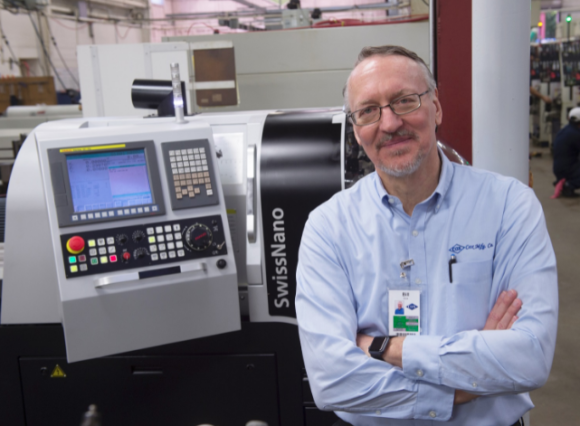In part 1 of my interview with Bill Cox, owner of Cox Manufacturing in San Antonio, Texas, Bill talked about the power of his company’s robust apprenticeship program.
But how does Cox Manufacturing get so many employee candidates, while most machining companies are dying to get any job applicants? Answer—the company has built a strategic recruiting program.
Some of the company’s strategies for finding new employees are simple common sense, such as keeping good records of everyone who has applied to the company, which Bill says some companies actually fail to do. Cox Manufacturing also posts a large company sign advertising jobs available, which is visible from the highway to grab the attention of potential employees.
The company also likes to find new employees via referrals from current employees who often bring in job candidates who fit the company’s culture. It offers bonuses to employees when their referrals remain at the company for one month, six months, and a year.
Several years ago, Bill became the founding chair of an organization of manufacturers in his area, called the Alliance for Technology Education in Applied Math and Science (ATEAMS). Initially, the organization sponsored tours for students to visit the area’s manufacturing companies with the hope it would attract them to working in the manufacturing industry. After a short time, the organization realized that instead of giving tours to students, it was more effective to give tours to local high school teachers who could then promote careers in manufacturing to the students. Prior to COVID-19, the program had become so popular it had a waiting list. Bill says most of the teachers have never been inside a manufacturing facility before, so they often are amazed when they get tours of state of the art shops like his. I asked Bill if guidance counselors also come on the tours. He said unfortunately most of them have not been receptive to promoting careers in manufacturing but he hopes that will change one day.
Bill said one of his employees who surprised him the most was a middle-aged woman who prior to working at Cox Manufacturing had spent many years in the health care field. She started at the company deburring and inspecting parts but then applied to its apprenticeship program. He said the company was hesitant to hire her because in the past they have not had the most success hiring people trained in other fields, but she persisted, so the company gave her a shot. As an apprentice she excelled and progressed much faster than a lot of her younger male peers. In 90 days she was setting up CNC machines.
Bill remains wary of people already making good money in other careers who apply to work at his company. In the past, the company invested in several employees who stayed there a little while, but left when more lucrative opportunities became available.
Cox Manufacturing has a policy of not admitting candidates to its apprenticeship program if they are fully trained in a field where they can make more money and jobs are available. The aerospace industry often has a lot of layoffs, so in the past, aircraft mechanics came to work at Cox Manufacturing but then left when their more lucrative previous jobs again became available. The company has had similar experiences with employees who previously worked in the oil industry.
Bill’s advice for manufacturing companies who want to build their workforce is to think about their long term future. He says companies should develop in-house training programs and start recruiting young people even when they don’t need new employees. They should not hire employees out of desperation who are not compatible with a long term success strategy.
As I do with many guests, I asked Bill what he thinks of when hears the word “happiness.” He told me happiness means fulfilling one’s God given purpose, which is why when his company hires a person it tries to make sure the job is aligned with who they are and who they are designed to be.
Question: How do you make sure employees stay long term?
Podcast: Play in new window | Download

